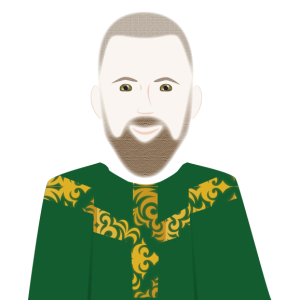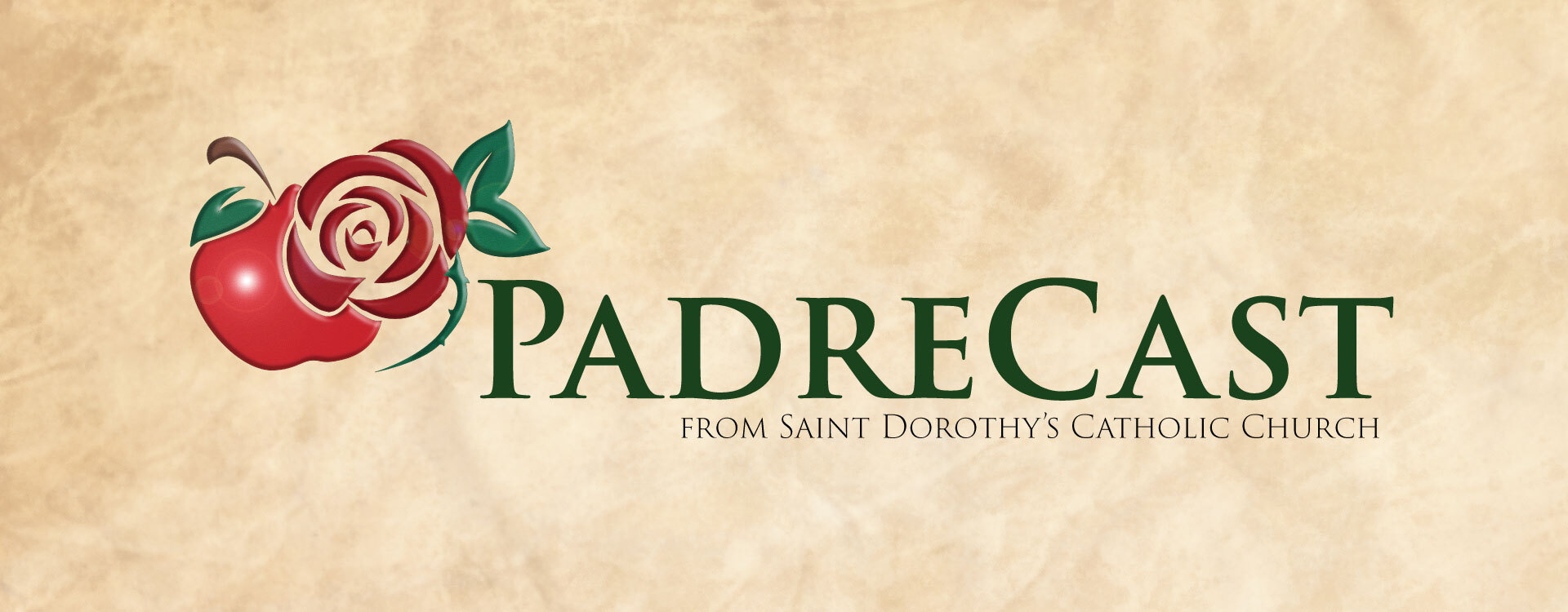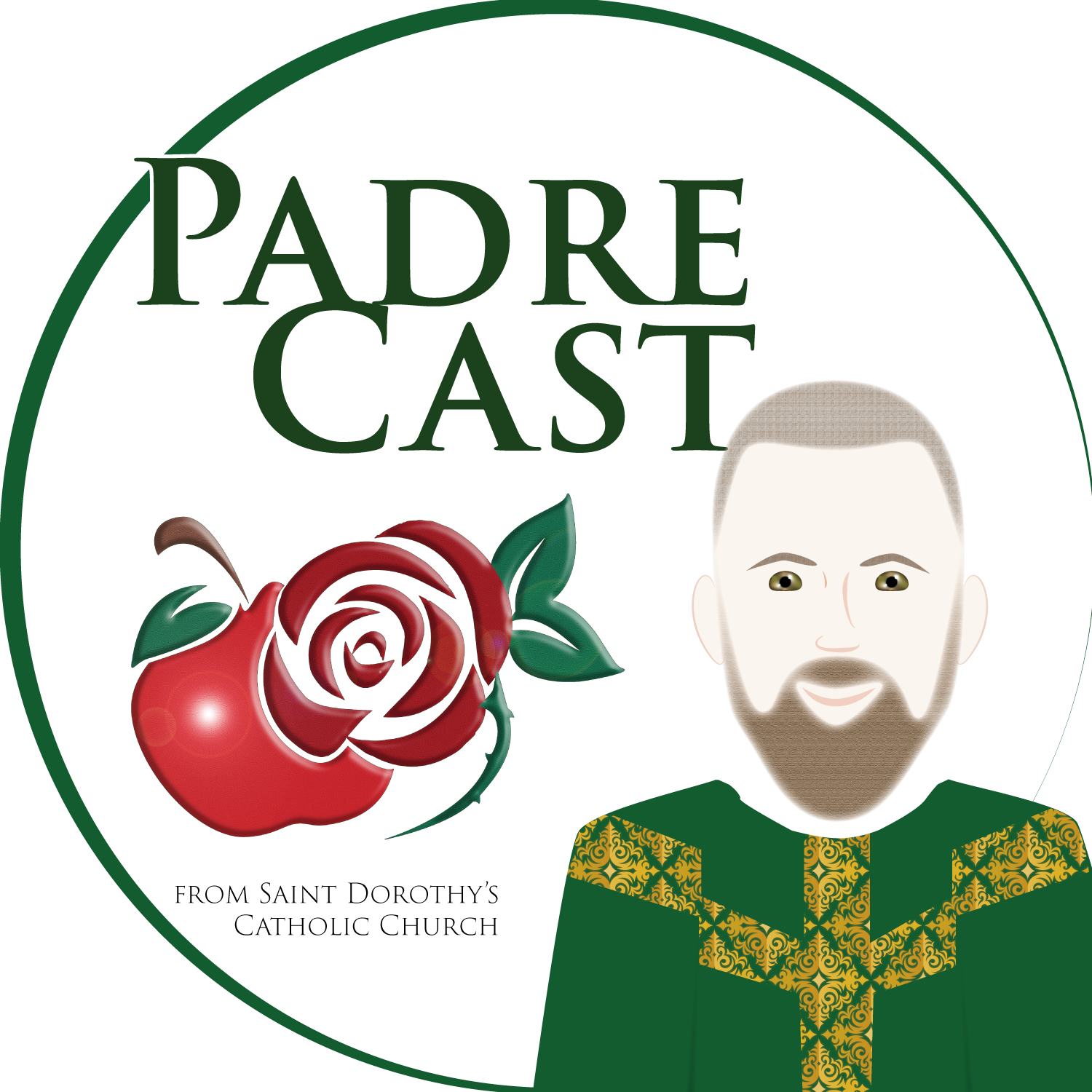Episodes

Sunday Oct 23, 2022
Words and Actions | PadreCast Thirtieth Sunday Ordinary Time
Sunday Oct 23, 2022
Sunday Oct 23, 2022
What we say when we pray, and what we do with our bodies when we pray reflects our beliefs. . . .
Throughout the Mass there are different rituals that we practice with our bodies, different postures that we have to express different things. . . .
Why do we kneel during the consecration and yet are forbidden from kneeling during the Our Father? Again, it's because of what the position of my body expresses in those moments.
I'm kneeling out of humility because of the miracle that is happening, for the God Who is coming to me. But when I pray the Our Father, I am praying - according to the Church's teachings - in the person of Jesus Christ. Since the Church is His Body and the Our Father is His prayer, when we pray as a body, we stand. Because a Son stands in the presence His Father. When we pray in the words of the Son, we stand, to represent our shared sonship in Christ.
What we do with our bodies expresses what we believe in our minds and hearts.
Lex orandi. Lex credendi. Lex vivendi. Which means: As we pray (both with our words and bodies), so we believe. And as we believe, so we live.
Why was it always the tradition of the Church that if you were not going to receive communion, you would not even approach? The simple reason is because that's the most humble thing you could do. To stay back. If you're not ready or able - for whatever reason - to approach the Holy of Holies, then why approach at all? Isn't that somewhat presumptuous?
I believe our Gospel reading today is the reason why the early Christian would not approach (if they were not prepared). . . .
You've got this sinner, this tax collector, who knows how offensive his sins are to God. He does not presume to approach. He stays back. Not only does he not approach, but he won't even look up to heaven. He looks down, he's probably on his knees, and hew prays this prayer: "Lord, have mercy on me, a sinner."
Jesus tells us that because of his humility, his prayer is heard, and he is forgiven. . . .
In our first reading from Sirach, we're told that "the prayer of the lowly is heard." It "pierces the clouds" like an arrow. A humble, a lowly person when they pray - even if they're a sinner - that prayer is heard by God and answered.
But the words you use when you pray are not enough. Even your body - what you do in your motions, your posture is important because it reflects what you really believe in your heart.
So if you, like this tax collector, like this sinner, are unworthy to receive the Lord, should you be approaching? Should you be "taking up your position" to receive communion? Of course not.
Our Lord doesn't want you to be singled out. He wants you to express - by your words and actions - the humility, the sorrow and the regret, that is needed. . . .
Anyone who receives communion at any Mass is not receiving because of their own righteousness, but purely because our Lord in His mercy has forgiven their sins. You see, it's our Lord Who washed you clean. It's our Lord Who made you worthy. You have no credit of your own. So when you do come forward, worthily, to receive His grace, all you can do is thank God.
This is not a rule. It's just a recommendation I am making for you because this is the ancient practice of Christians.
Sir 35:12-14, 16-18; Ps 34:2-3, 17-18, 19, 23; 2Tm 4:6-8, 16-18; Lk 18:9-14
You may watch the Mass in its entirety on our YouTube channel. Homily begins at 17:04
Version: 20241125


No comments yet. Be the first to say something!